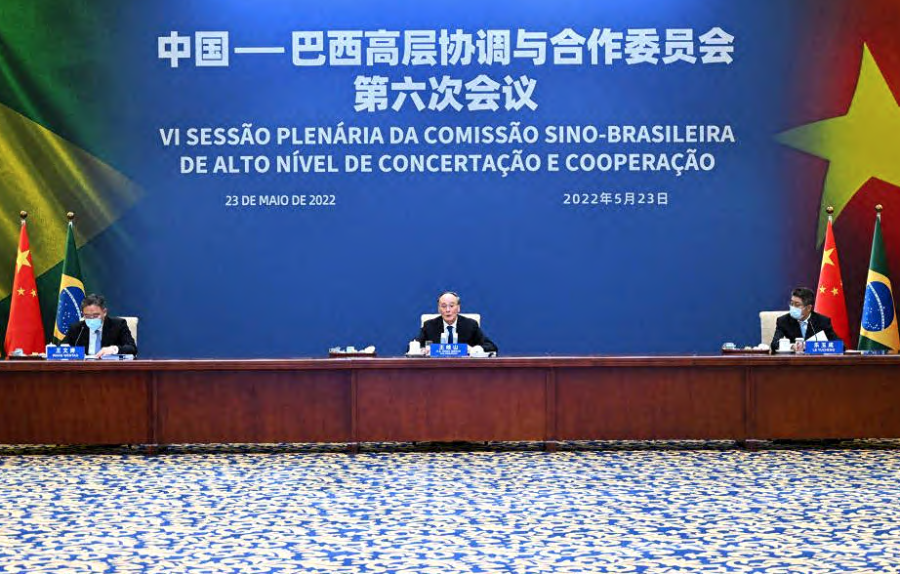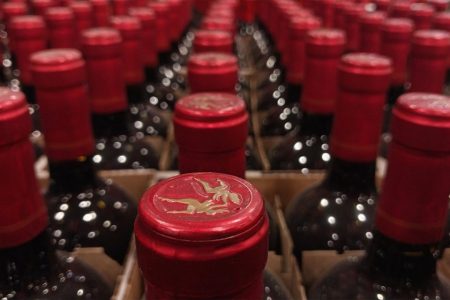The Brazilian and Chinese vice-presidents have praised their “high level” of bilateral relations throughout the Covid-19 pandemic, even though they are currently strained by the impact of China’s lockdown for Brazilian exports.
The 6th plenary session of the Sino-Brazilian High Level Commission for Dialogue and Cooperation (Cosban) was convened virtually last Monday.
Established in 2004, Cosban is the main coordination mechanism for the bilateral relationship between Brazil and China and is led by the vice-presidents of each country.
Speaking after the meeting, Hamilton Mourão, Brazilian vice-president, said China’s strategy to combat Covid “is totally different from the rest of the world due to the characteristics of the country and its system of government.”
China “adopts this Covid-zero strategy, which every now and then causes a disruption in terms of global supply chains, because it brings the economy to a halt,” said Mourão.
In a formal declaration signed by the two vice-presidents, China and Brazil agreed that the cooperative relationship between their nations during the pandemic has been successful.
Mourão mentioned the production of vaccines in partnership with the Butantan Institute and the Fiocruz foundation as one of the main bilateral agreements between the countries.
“Let’s remember that we bought 100 million doses of Coronavac, in this agreement with Butantan, and in addition we received (from China) inputs for the production of AstraZeneca at Fiocruz; this partnership, in terms of fighting the pandemic, was extremely positive for us here in Brazil, and obviously for the trade relationship with China,” said Mourão.
The Brazilian vice-president recalled that President Jair Bolsonaro is due to meet Chinese leader Xi Jinping at the BRICS meeting – comprising Brazil, Russia, India, China, South Africa – in China next month.
Regarding frictions due to statements made by Brazilian authorities about China during the pandemic, Mourão highlighted that “there were some noises”, but that the relationship was always kept at a “high level.”
Noting that Brazil attaches great importance to its comprehensive strategic partnership with China, Mourão said Brazil hopes to increase exports to China, work to respond to common challenges including food security, and tap into new opportunities brought by energy transitions and the low-carbon economy. He said that Brazil welcomes Chinese enterprises who want to invest in Brazil.
Chinese vice-president Wang Qishan said that in recent years, China and Brazil have been accommodating each other’s fundamental and long-term interests, and have worked together to counter global challenges, writing a new chapter of cooperation between emerging economies.
He said that as major countries with global influence, China and Brazil should maintain close communications over major international and regional issues, enhance coordination within multilateral frameworks, and help maintain and facilitate the common interests of emerging markets and developing countries.






